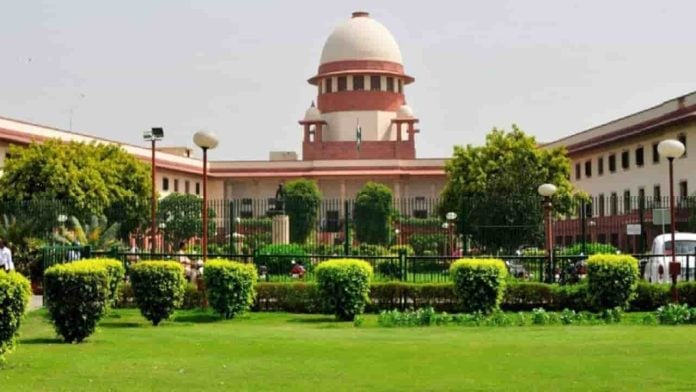In order to boost digitisation across different courts of the country as well as to maximise the ease of justice, the Union Cabinet has approved financial outlay of Rs 7210 crore for Phase III of the e-Courts Project.
Union Ministry of Law and Justice, as well as Law Minister Arjun Ram Meghwal broke the news on X (formerly Twitter) on Wednesday.
Prime Minister Narendra Modi also conveyed his feelings over the development on X, saying that the Cabinet approval would usher in a new era of justice delivery in India. He said integrating advanced technology would make the Indian judicial system more accessible and transparent.
A press release issued by the Press Information Bureau said that Phase-III of the E-Courts aimed at ushering in a regime of maximum ease of justice by moving towards digital, online and paperless courts through digitisation of the entire court records, including legacy records and by bringing in universalisation of e-Filing/ e-Payments through saturation of all court complexes with e-Sewa Kendras.
It said the project would put in place intelligent smart systems enabling data-based decision making for judges and registries, while scheduling or prioritising cases.
The main objective of Phase-III was to create a unified technology platform for the judiciary, which would provide a seamless and paperless interface between the courts, litigants and other stakeholders.
As per the release, the Centrally Sponsored Scheme of eCourts Phase III was being implemented under the joint partnership of Department of Justice, Ministry of Law & Justice, Government of India and eCommittee, and the Supreme Court in a decentralised manner through the respective High Courts, to develop a judicial system that would promote ease of justice by making the system more accessible, affordable, reliable, predictable and transparent for all stakeholders.
As per PIB, the scheme would help the citizens who do not have access to technology to access the judicial services from eSewa Kendras, thus bridging the digital divide.
Digitisation of court records would lay the foundation for all other digital services in the project.
It would enable the processes to become more environment-friendly by minimising paper-based filings and reducing the physical movement of documents.
The project would aid virtual participation in the court proceedings, thus reducing costs associated with court proceedings, such as travel expenses for witnesses, judges and other stakeholders.
It would ensure payment of court fees, fines and penalties from anywhere, anytime.
The project would further aid expansion of eFiling for reducing the time and effort required to file documents.
This would minimise human errors as documents would be automatically checked and also prevent further creation of paper based records.
Use of latest technologies like Al and its subsets Machine Learning (ML), Optical Character Recognition (OCR), Natural Language Processing (NLP) to provide a smoother user experience by building a “smart” ecosystem.
Registries will have less data entry and minimal file scrutiny facilitating better decision-making and policy planning.
It envisages a smart scheduling, intelligent system that enables data-based decision making for judges and registries, allows for greater predictability and optimisation of the capacity of judges and lawyers.
Expansion of virtual courts beyond the adjudication of traffic violation cases, thereby eliminating the presence of litigants or lawyers in the court.
Enhanced accuracy and transparency in court proceedings.
Emphasis on automated delivery of court summons by further expanding the NSTEP (National Serving and Tracking of Electronic Processes), hence drastically reducing the delays in trials.
Use of emerging technologies in court processes will make them more efficient and effective, hence contributing significantly towards the reduction of pendency cases.


